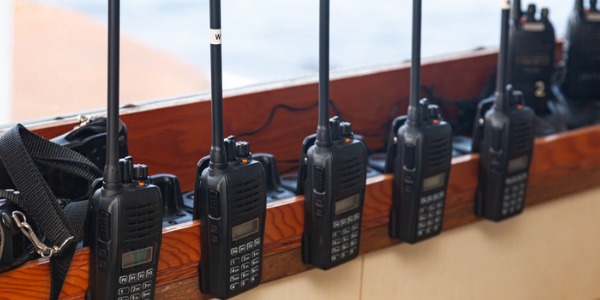What is a Radio Mechanic?
A radio mechanic specializes in the installation, maintenance, and repair of radio communication systems. They work with various types of equipment, such as transmitters, receivers, antennas, and other related components. These systems may be used for a variety of purposes, such as two-way communication between individuals or groups, broadcasting, or emergency response communications.
Radio mechanics may work in a range of industries, including telecommunications, aviation, maritime, and military. They need to have a deep understanding of electronics and radio frequency principles, as well as knowledge of the specific equipment and systems they work with. They also need to be skilled in troubleshooting and problem-solving, as they may need to quickly diagnose and repair issues with equipment in order to maintain critical communication systems. Some radio mechanics may also be involved in designing and testing new equipment, or in providing training to others on how to use and maintain radio communication systems.
What does a Radio Mechanic do?

Duties and Responsibilities
The specific duties and responsibilities of a radio mechanic may vary depending on the industry they work in and the specific equipment they are responsible for. However, some common tasks and responsibilities that a radio mechanic may have include:
- Installing and configuring radio communication equipment: Radio mechanics are responsible for installing and configuring radio equipment, such as transmitters, receivers, and antennas. This involves following detailed schematics and blueprints to ensure that the equipment is properly installed and functioning as intended.
- Maintaining and repairing radio equipment: Radio mechanics are also responsible for maintaining and repairing radio equipment. This involves performing routine maintenance tasks, such as replacing worn components and cleaning equipment, as well as troubleshooting and diagnosing problems with equipment and performing repairs as needed.
- Testing and calibrating radio equipment: Radio mechanics may also be responsible for testing and calibrating radio equipment to ensure that it is functioning properly and accurately. This may involve using specialized testing equipment to measure signal strength, frequency, and other important parameters.
- Conducting safety checks: Radio mechanics may also be responsible for conducting safety checks on radio equipment to ensure that it is safe to operate. This may involve inspecting equipment for damaged components, ensuring that wiring and connectors are properly secured, and testing for proper grounding and electrical isolation.
- Training others: Finally, radio mechanics may also be responsible for training others on how to use and maintain radio equipment. This may involve providing instruction on best practices for operating and troubleshooting equipment, as well as providing guidance on how to properly maintain and repair equipment.
Types of Radio Mechanics
There are several types of radio mechanics, each with their own specific area of expertise and job responsibilities. Some of the most common types of radio mechanics include:
- Marine Radio Mechanics: Marine radio mechanics are responsible for installing, maintaining, and repairing radio communication equipment used in the maritime industry. This includes equipment used on ships, boats, and other watercraft.
- Aviation Radio Mechanics: Aviation radio mechanics specialize in the installation, maintenance, and repair of radio communication equipment used in the aviation industry. This includes equipment used on aircraft, as well as ground-based communication systems used in air traffic control.
- Land Mobile Radio Mechanics: Land mobile radio mechanics work with radio communication equipment used for land-based communication systems, such as two-way radios used by emergency responders, law enforcement agencies, and other organizations.
- Satellite Radio Mechanics: Satellite radio mechanics are responsible for the installation, maintenance, and repair of satellite-based communication systems. This includes equipment used for satellite TV and radio broadcasts, as well as satellite-based internet and telephone systems.
- Military Radio Mechanics: Military radio mechanics are responsible for maintaining and repairing communication equipment used by the military. This includes radio systems used by soldiers in the field, as well as communication equipment used on military vehicles and aircraft.
What is the workplace of a Radio Mechanic like?
The workplace of a radio mechanic can vary depending on their specific job role and the industry they work in. Generally, radio mechanics can be found working in a variety of settings, including radio stations, telecommunications companies, broadcasting facilities, and repair shops.
At a radio station or broadcasting facility, the workplace of a radio mechanic may include a combination of office spaces, studios, and equipment rooms. They may spend their time troubleshooting and maintaining broadcasting equipment, setting up audio systems, and ensuring the smooth operation of radio transmissions. Radio mechanics in these environments may work closely with radio producers, sound engineers, and other broadcasting professionals to address technical issues and optimize sound quality.
In telecommunications companies, radio mechanics may work in central offices or network operation centers where they monitor and maintain radio communication systems. They may also be responsible for installing and configuring radio equipment, conducting regular inspections, and performing repairs as needed. These professionals often collaborate with network engineers and technicians to ensure reliable and efficient radio communication services.
Repair shops or service centers are another common workplace for radio mechanics. In these settings, they typically focus on diagnosing and repairing radio equipment brought in by customers or clients. This could involve fixing radios, antennas, transmitters, or receivers, and may require working with various tools, testing equipment, and soldering components. Repair shops often have dedicated workstations equipped with the necessary tools and instruments for troubleshooting and repairing radio devices.
Regardless of the specific workplace, radio mechanics may need to work with precision, attention to detail, and adherence to safety protocols. They may also need to keep up with the latest advancements in radio technology and regularly update their skills to effectively address the evolving needs of the industry.
Frequently Asked Questions
Mechanic Related Careers and Degrees
Radio Mechanics are also known as:
Radio Technician